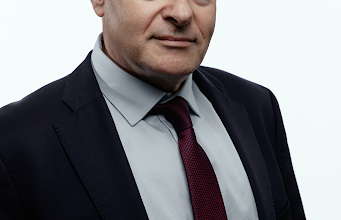Energy Efficiency: Smart AC Repair and Gym Maintenance Services for Dubai’s Eco-Conscious Gyms

Dubai’s commitment to sustainability and environmental responsibility has transformed how fitness facilities approach energy consumption and operational efficiency. Modern gym owners recognize that energy efficiency initiatives not only reduce environmental impact but also create substantial cost savings while enhancing facility performance and member satisfaction.
Dubai’s Sustainability Vision and Fitness Industry Impact
Dubai’s ambitious sustainability goals, including the Dubai Clean Energy Strategy 2050, directly influence how fitness facilities must approach energy consumption and environmental responsibility. These initiatives create both regulatory requirements and market opportunities for facilities that embrace energy-efficient operations.
The fitness industry’s high energy consumption makes it a priority sector for efficiency improvements. Facilities that proactively adopt energy-efficient practices position themselves advantageously for future regulations while demonstrating environmental leadership that appeals to eco-conscious members.
Understanding Energy Consumption Patterns in Dubai Gyms
Dubai fitness facilities typically consume 40-60% more energy than similar facilities in temperate climates due to extreme cooling requirements. HVAC systems account for 60-70% of total energy usage, while fitness equipment contributes 15-25%, and lighting and ancillary systems make up the remainder.
Peak energy consumption occurs during summer months when cooling demands coincide with maximum equipment usage. Understanding these patterns enables targeted efficiency improvements that provide maximum impact on both energy consumption and operating costs.
Smart HVAC Technologies for Energy Optimization
Advanced HVAC technologies offer significant efficiency improvements through variable speed drives, smart controls, and optimized system design. These technologies can reduce HVAC energy consumption by 30-50% while maintaining superior comfort levels.
Professional AC repair Dubai services increasingly specialize in energy-efficient system upgrades and optimization techniques that reduce consumption while improving performance. These services include system retrofits, control upgrades, and operational optimization that maximizes efficiency.
Equipment Efficiency and Maintenance Optimization
Well-maintained fitness equipment operates significantly more efficiently than neglected machines. Regular maintenance can improve equipment energy efficiency by 15-30% while extending operational life and reducing heat generation that increases cooling demands.
Energy-focused gym maintenance services Dubai providers implement maintenance approaches that prioritize efficiency optimization alongside reliability and safety. These approaches include lubrication programs that reduce friction losses, calibration procedures that optimize performance, and component upgrades that improve efficiency.
Building Management Systems for Efficiency Control
Integrated building management systems enable comprehensive energy optimization through coordinated control of HVAC, lighting, and equipment systems. These systems can reduce facility energy consumption by 20-40% through optimized scheduling and automated efficiency controls.
Smart building technologies include occupancy sensors that adjust system operation based on facility usage, predictive controls that anticipate energy needs, and integration capabilities that optimize energy consumption across all facility systems.
Renewable Energy Integration Opportunities
Dubai’s abundant solar resources create opportunities for fitness facilities to integrate renewable energy systems that reduce grid consumption while demonstrating environmental commitment. Solar installations can offset 40-80% of facility energy consumption depending on system size and facility characteristics.
Renewable energy integration requires careful planning that considers facility energy patterns, available roof space, grid connection requirements, and financial incentives available through Dubai’s renewable energy programs.
LED Lighting and Smart Illumination Systems
LED lighting retrofits typically provide 60-80% energy savings compared to traditional lighting while offering superior light quality and longer operational life. Smart lighting controls can provide additional savings through occupancy-based operation and daylight harvesting.
Lighting efficiency improvements often provide the fastest payback periods among energy efficiency investments, making them attractive starting points for comprehensive efficiency programs.
Energy Monitoring and Performance Tracking
Comprehensive energy monitoring systems enable identification of efficiency opportunities and tracking of improvement results. These systems provide data that supports operational optimization and demonstrates the value of efficiency investments.
Energy monitoring should include sub-metering of major energy consumers, real-time consumption tracking, and performance benchmarking that identifies trends and optimization opportunities.
Heat Recovery and Waste Energy Utilization
Heat recovery systems can capture waste heat from equipment and cooling systems for use in water heating or other facility needs. These systems can reduce total facility energy consumption by 10-25% while improving overall efficiency.
Waste energy utilization requires careful system design that considers facility energy patterns and identifies opportunities for beneficial heat recovery without compromising primary system performance.
Water Efficiency and Conservation Integration
Water efficiency improvements often complement energy efficiency initiatives through reduced pumping energy, lower water heating costs, and integrated system optimization. Water conservation also supports Dubai’s water sustainability objectives.
Integrated efficiency approaches address both energy and water consumption through coordinated improvements that maximize resource efficiency while reducing operational costs.
Green Building Certification Benefits
Green building certifications such as LEED or BREEAM provide frameworks for comprehensive efficiency improvements while offering marketing benefits and potential regulatory advantages. These certifications demonstrate environmental commitment that appeals to eco-conscious members.
Certification processes often identify efficiency opportunities that might be overlooked in less comprehensive approaches while providing third-party validation of environmental performance.
Financial Incentives and Support Programs
Dubai offers various financial incentives for energy efficiency improvements including rebates, grants, and favorable financing programs. These incentives can significantly improve the financial returns from efficiency investments.
Understanding available incentive programs helps optimize project planning and financing while maximizing the financial benefits of efficiency improvements.
Maintenance Strategies for Sustained Efficiency
Energy efficiency requires ongoing maintenance that preserves system performance and prevents efficiency degradation over time. Efficiency-focused maintenance programs monitor system performance and address issues that compromise efficiency.
Maintenance strategies should include regular efficiency testing, performance optimization procedures, and proactive replacement of components that affect energy consumption.
Member Engagement and Education
Engaging members in efficiency initiatives creates additional opportunities for energy savings while building community support for environmental programs. Member education can influence behavior patterns that affect facility energy consumption.
Engagement strategies might include efficiency awareness campaigns, real-time energy consumption displays, and incentive programs that reward environmentally conscious member behavior.
Technology Integration for Smart Operations
Internet of Things (IoT) technologies enable smart facility operations that automatically optimize energy consumption based on real-time conditions and usage patterns. These technologies can provide significant efficiency improvements with minimal operational burden.
Smart operations include automated system adjustments, predictive maintenance scheduling, and integrated optimization that addresses multiple facility systems simultaneously.
Return on Investment Analysis
Energy efficiency investments typically provide attractive returns through reduced operating costs, potential incentive payments, and improved facility performance. Comprehensive analysis should consider all financial benefits including energy savings, maintenance cost reductions, and potential revenue improvements.
ROI analysis should also consider non-financial benefits including environmental impact, member satisfaction improvements, and competitive advantages that result from efficiency leadership.
Future-Proofing Through Efficiency Investment
Energy efficiency investments help future-proof facilities against rising energy costs, evolving regulations, and changing member expectations regarding environmental responsibility. These investments create long-term value that extends beyond immediate cost savings.
Future-proofing strategies should consider emerging technologies, anticipated regulatory changes, and evolving best practices that will influence future facility operations and member expectations.
Implementation Planning and Project Management
Successful efficiency programs require careful planning that prioritizes improvements based on cost-effectiveness, operational impact, and strategic objectives. Implementation should minimize facility disruption while maximizing efficiency gains.
Project management should include performance monitoring that verifies efficiency improvements and identifies opportunities for additional optimization.
Industry Leadership and Competitive Advantage
Facilities that achieve superior energy efficiency often gain competitive advantages through reduced operating costs, enhanced reputation, and member attraction benefits. Industry leadership in efficiency creates marketing opportunities and positions facilities for future success.
Leadership strategies should include public recognition of efficiency achievements, member communication about environmental programs, and participation in industry sustainability initiatives.
Conclusion: Strategic Efficiency Excellence
Energy efficiency for AC repair Dubai and gym maintenance services Dubai represents a strategic opportunity that aligns environmental responsibility with operational excellence and financial benefits. Smart efficiency approaches create sustainable competitive advantages while supporting Dubai’s broader sustainability objectives.
Don’t view energy efficiency as an additional burden or cost center. Embrace efficiency as a strategic initiative that reduces costs, enhances performance, and demonstrates environmental leadership that attracts eco-conscious members and supports long-term business success.
The future belongs to facilities that integrate efficiency excellence into their operational DNA, creating sustainable operations that thrive economically while contributing positively to Dubai’s environmental goals.





